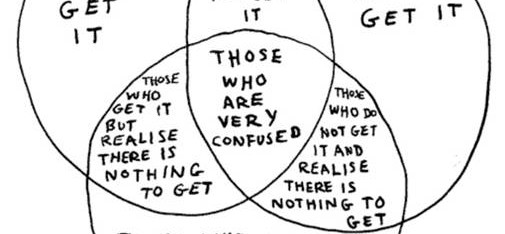A great post I found via Nextness which is bang on with its analysis of the intricies of social media behaviour amongst various platforms.
In no particular order:
Facebook was fun at first because it was anchored in the real world. You used your real name to sign up; real world networks were laid bare.
Friending someone from school/work/Little Athletics was like a lucky dip. Would you find gossip, something to envy, or a new connection? Any of those options were delightful; in those halcyon early days of friending it was impossible to lose.
But precisely because Facebook friendships were based on “real life,” they became boring: you already knew these people, and now you knew more than you cared to.
The buzz wore off. (We started Facebook culls. “I don’t even know who this person is,” and tightening our privacy settings.)
Regaining that buzz of connection and self-expression is what Twitter’s for: with the added ability to follow whoever you want without being made to feel like a stalker.
A huge bonus of Twitter is that there’s the small possibility you could be RTed by a celebrity.
Twitter’s a world that favours being clever, witty, and interesting, tweet by tweet over time – rather than what school you went to, or the parties to which you get invited. (Supposedly.)
People used to take their digital cameras everywhere to flesh out their Facebook albums. But the act of ruthlessly documenting small gatherings with a real camera became frowned upon. (Big gatherings, such as weddings, are different and still documented via albums.)
Even though having an iPhone now is the equivalent of a quality point-and-shoot in your pocket, many people never returned to using Facebook albums to post party pics.
Instead, Instagram is the new go-to platform for saying “I live a full life and here is photographic proof.”

Posting constant #selfies on Facebook is frowned upon as narcissistic. But posting a lighthearted selfie on Instagram is fun.
Photoshopping your party/holiday pics is vain. But applying a filter to or Snapseeding your iPhone pics is creative.
Instagram is like Twitter in that you can follow strangers without feeling like a creep.
A Twitter follow is saying “I like your mind.” An Instragram follow is saying “I like your eye.” What does a Facebook add say? It’s complex.
Everyone prefers to be the added not the adder on Facebook.
To follow and not be followed back on Twitter is a mild disappointment. To have your Facebook friendship denied is a disaster.
A Facebook like is less exciting to receive than a Twitter fave.
No one yet knows what a Twitter fave really means. (Does it mean “I want to keep this tweet filed away so I can look at it again?” – that’s weird. Or is this person using the fave as a like?)
Sometimes people use the Twitter fave button to say “I am acknowledging this tweet with gratitude but content to let the conversation end.” (If only there was a way of doing this with email and real-life convos too.)
Neither a Facebook like nor a Twitter fave is as good as an RT using the RT button.
Getting an RT using the RT button is a more straightforward high than getting an old fashioned manual RT. (Exception: if the person precedes the manual RT with a compliment, agreement or joke, adding value to your original.)
Also problematic is an MT – hardly anyone knows that MT means “modified tweet” and sometimes your original tweet becomes truncated/loses its meaning. What if the followers of the person who MTed it think you’re illiterate?
Nothing is more bittersweet than getting a tweet with a typo RTed.
Unless it ends with an exclamation mark, a tweet of “ha” or “haha” can sound sarcastic.
But Tweets of more than three (3) ha-s are straightforward acknowledgments of humour.
Only approximately 10% of “LOL” or “Hahaha” social media remarks are accompanied by the person laughing in real life.
A photo of your boyfriend or girlfriend on Instagram will get surprisingly little response however good it is, because no one is sure yet whether a like in that circumstance means “I like the photo” or “he/she is hot.”
A photo of a pet on Instagram is somehow cuter than one on Facebook.
Tumblr is for gathering photos of the self you’ll be when you grow up.
Pinterest is for gathering photos of the self you’ll be when you get the money.
What are your #socialmediatheories?













